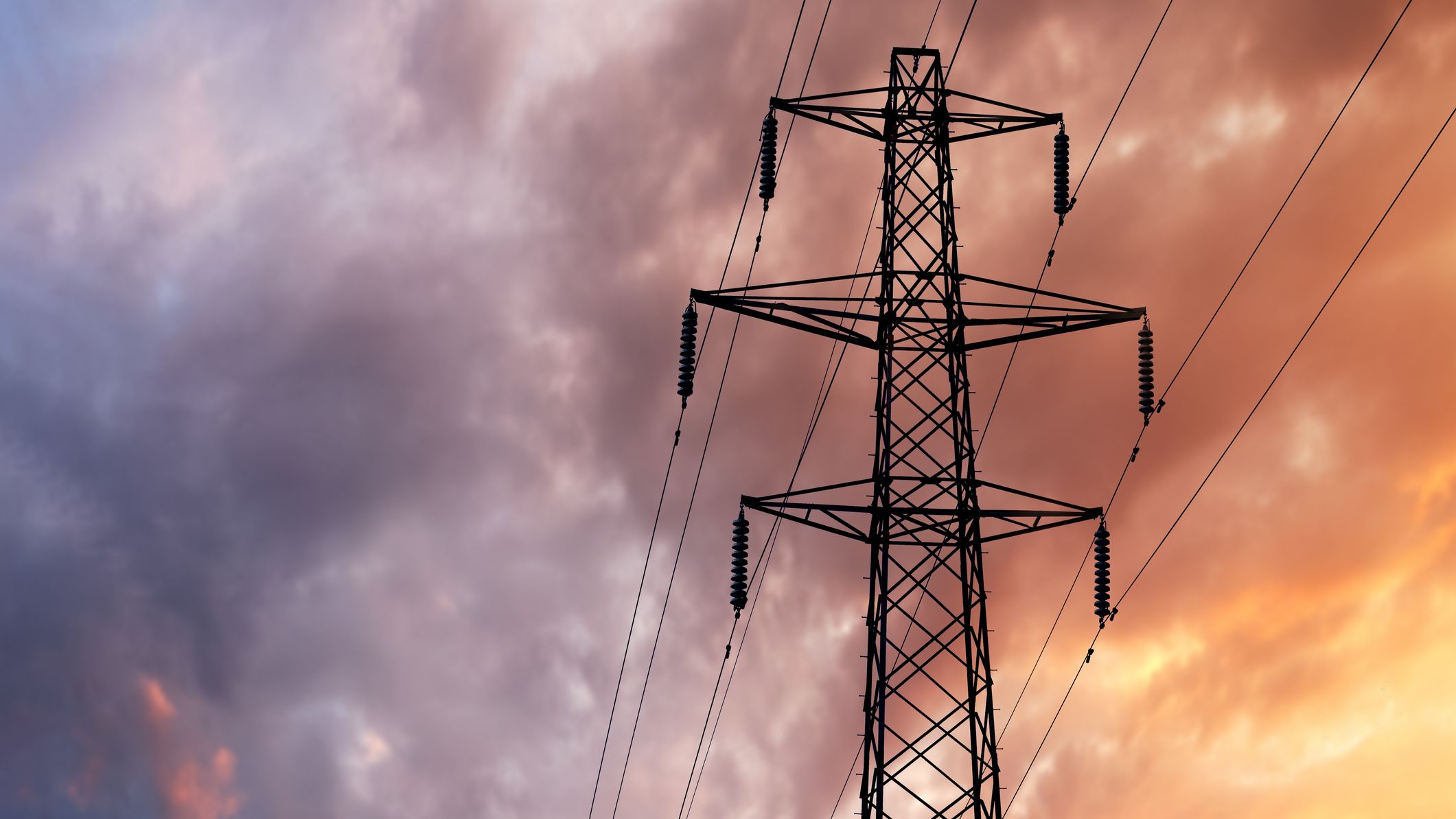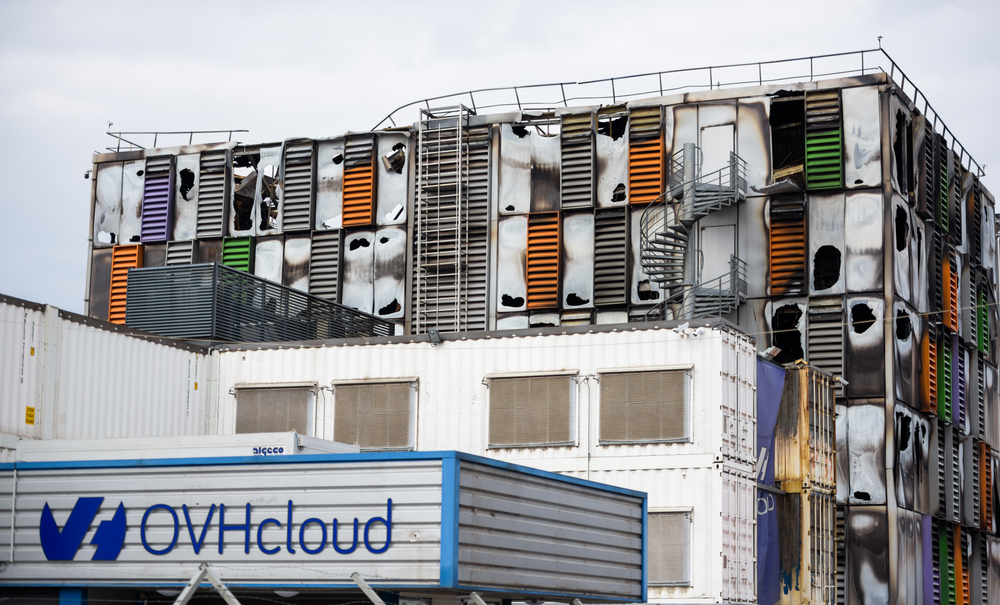Government holds talks with data centre operators over energy blackout threat
One data centre operator has been preparing to switch over to diesel power in the event of a national blackout


UK government officials have reportedly met with data centre operators to discuss how to keep them running during any power shortages that might occur during the coming months.
The country is facing a looming energy crisis with reports earlier this month that the National Grid might impose three-hour blackouts in some areas.
RELATED RESOURCE

Building the ideal master data management RFP
100+ questions to help kickstart your MDM decision
On Monday, John Pettigrew, the National Grid chief, said that blackouts will have to be imposed in January and February if electricity generators don’t have enough gas to meet demand, especially if there is a period of cold weather, as reported by Sky News.
The talks between government officials in the Department for Digital, Culture, Media, and Sport (DCMS) and data centre operators were reportedly held in recent weeks, according to a report from Bloomberg. They centred on allocating diesel for backup generators if the National Grid decides to cut power, and whether data centres should be considered as critical national infrastructure (CNI). Designating the sector as CNI doesn’t come with formal protections but shows the government has officially recognised how important it is.
There are currently draft plans in place, but these weren’t revealed. However, there are contingency plans which could involve other government agencies like the Department for Business, Energy and Industrial Strategy, and the specialised Civil Contingencies Secretariat.
Data centre companies have also asked the Environment Agency to relax a rule so their centres can start diesel generators 15 minutes before an expected blackout, instead of as it begins, which the operators believe would allow safer phasing from one power supply to another. IT Pro has asked the agency for comment.
“Equinix is closely monitoring developments around any impact to power and gas supplies, and has been taking additional measures in light of the war in Ukraine to ensure a good diesel stockholding and various redundant supply chain provisions across its sites, should there be any interruptions to grid availability,” Gary Aitkenhead, senior vice president of EMEA IBX operations at Equinix told IT Pro.
Get the ITPro daily newsletter
Sign up today and you will receive a free copy of our Future Focus 2025 report - the leading guidance on AI, cybersecurity and other IT challenges as per 700+ senior executives
“Equinix data centres are adequately prepared and able to seamlessly go on and off generator power as needed pending potential blackouts," he added. "It is highly unlikely there will be a need to run for more than a few hours, or at worst case a day, on diesel, but Equinix is prepared to run for up to a week following further contingency planning.”
A Microsoft spokesperson said the company is actively monitoring the situation, and the resulting impacts to countries where it operates data centre regions.
"In the event of energy restrictions, we will comply with all government requirements to reduce demand on the energy grid," they added. "We will take the necessary steps to help reduce the burden on local utilities, while working to ensure minimal disruption to our customers and their workloads running on the Microsoft cloud.”
Most enterprises and cloud providers will have some form of backup or generation and power availability, said Philip Dawson, a VP analyst at Gartner. That power availability may be alternate connections, providers, or backup generators, for example. The smaller the business is, however, the smaller the recovery and resilient capabilities will be.
Dawson is most worried about the mid market, medium sized enterprises with their own data centres, as they may not have the redundancy and resiliency built into their data centres that larger enterprises will have installed. He said it might pitch mid market versus enterprise versus provider, and it could produce tactical differences in how each segment of the market is dealing with the power outage, if they are at all exposed to it.
He also advises businesses to look at what elements of their operations in the cloud are mission critical business continuity elements. To prepare for the potential outage, companies should try to prioritise what workloads and applications are really key.
“The way to look at it is what applications you need to have availability. Not a platform, the hardware, or the system running in the cloud, you've got to look at what you require to make your business work and what application, try and think of application delivery and not system delivery,” said Dawson.
It’s important for businesses to find out what they’re running in the cloud, where it’s being run, and what is important. If those systems fail due to power failure, or supply, they’re going to disappear for two or three hours at a time. “You’ve got to make sure that those core platforms, core applications, are running for your business continuity,” he underlines.
Data centre operators could even be looking at a 40% increase in costs due to the energy crisis, and there might not even be a viable solution in the UK for years to come, an analyst said last month.
Tiny Haynes, Gartner senior research director, also said that the impact wouldn't affect every data centre in the same way, since it depends on the facility and operators themselves. Managed service providers may be insulated from cost increases by larger margin, whereas those providing data centre space could be more exposed to power pricing.
Zach Marzouk is a former ITPro, CloudPro, and ChannelPro staff writer, covering topics like security, privacy, worker rights, and startups, primarily in the Asia Pacific and the US regions. Zach joined ITPro in 2017 where he was introduced to the world of B2B technology as a junior staff writer, before he returned to Argentina in 2018, working in communications and as a copywriter. In 2021, he made his way back to ITPro as a staff writer during the pandemic, before joining the world of freelance in 2022.
-
 Should AI PCs be part of your next hardware refresh?
Should AI PCs be part of your next hardware refresh?AI PCs are fast becoming a business staple and a surefire way to future-proof your business
By Bobby Hellard
-
 Westcon-Comstor and Vectra AI launch brace of new channel initiatives
Westcon-Comstor and Vectra AI launch brace of new channel initiativesNews Westcon-Comstor and Vectra AI have announced the launch of two new channel growth initiatives focused on the managed security service provider (MSSP) space and AWS Marketplace.
By Daniel Todd
-
 UK regions invited to apply for ‘AI Growth Zone’ status
UK regions invited to apply for ‘AI Growth Zone’ statusNews The UK government has opened up bidding for regions hoping to secure 'AI growth zone' status.
By Emma Woollacott
-
 “Botched government procurement” leads to £24 million Atos settlement
“Botched government procurement” leads to £24 million Atos settlementNews Labour has accused the Conservative government of using taxpayers’ money to pay for their own mistakes
By Zach Marzouk
-
 UK government to run Starlink trials in Snowdonia, Lake District
UK government to run Starlink trials in Snowdonia, Lake DistrictNews The government has indicated low-Earth orbit satellites could be key to expanding connectivity to UK businesses
By Rory Bathgate
-
 Re:Invent 2021: Zerto unveils its disaster recovery solution for AWS
Re:Invent 2021: Zerto unveils its disaster recovery solution for AWSNews Zerto In-Cloud for AWS automates on-premises and cloud failover, recovery, and testing workflows
By Praharsha Anand
-
 HPE inks $2 billion high-performance computing deal with the NSA
HPE inks $2 billion high-performance computing deal with the NSANews HPE will provide scalable on-premises computing to the NSA using Greenlake
By Danny Bradbury
-
 OVH data centre fire shows backups should be standard, founder says
OVH data centre fire shows backups should be standard, founder saysNews Octave Klaba suggests many customers incorrectly assumed backups were a default part of their contract
By Bobby Hellard
-
 Investigation underway into cause of OVH data centre fire
Investigation underway into cause of OVH data centre fireNews French firm urges customers across Europe to trigger disaster recovery plans
By Bobby Hellard
-
 Keep your data available with snapshot technology
Keep your data available with snapshot technologyWhitepaper Synology’s solution to your data protection problem
By ITPro